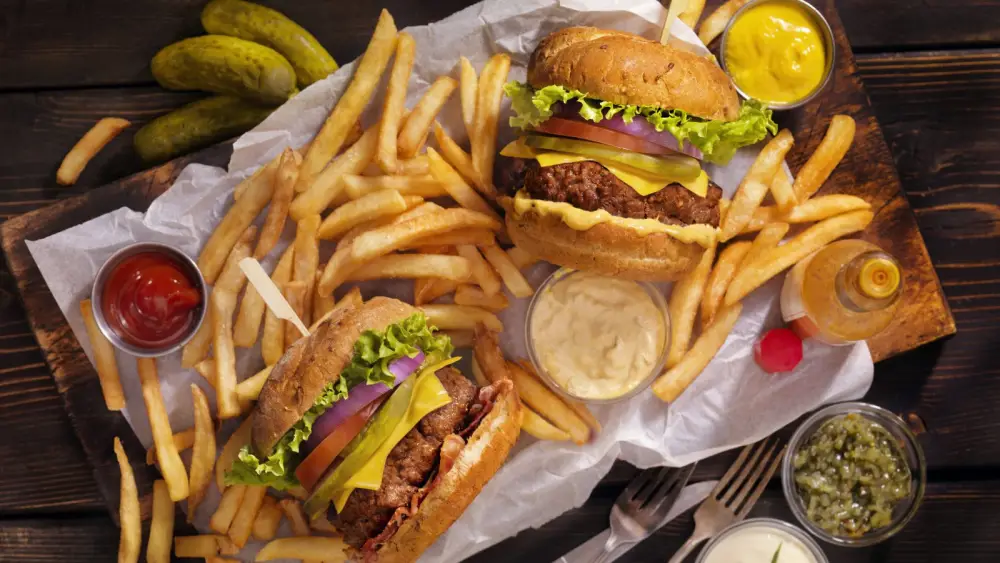Rumors have been swirling that Burger King, one of the most iconic fast-food chains globally, is shutting down completely. These whispers left Whopper fans worried about losing their go-to spot for flame-grilled burgers. However, the truth is far less alarming: Burger King isn’t disappearing but instead undergoing a major overhaul to remain competitive in the fast-food market.
No Total Shutdown, but Big Changes Are Coming
According to Reuters, the idea of Burger King closing all its locations was never on the table. Instead, the company is making tough decisions about underperforming franchises. The goal is to eliminate restaurants that fail to meet performance standards while investing in modernization efforts for the rest of its locations.
Burger King has been quietly closing some of its locations over the years. Now, the company plans to ramp up those efforts, shutting down around 400 more restaurants across the United States. While this may sound concerning, these closures are part of a larger strategy to rejuvenate the brand.
Why the Closures?
The fast-food industry is notoriously competitive, with giants like McDonald’s, Wendy’s, and Chick-fil-A vying for market share. Burger King has struggled in recent years to keep up, with some franchises failing to maintain the quality and efficiency that customers expect.
By phasing out these underperforming locations, Burger King can focus its resources on franchises that show promise. This approach allows the company to concentrate on improving the overall customer experience, including menu enhancements, better service, and modernized dining spaces.
Modernization and Innovation
In addition to closures, Burger King is investing in upgrades for its remaining restaurants. The modernization efforts include:
- Revamped Interiors: Redesigned dining areas with contemporary décor to create a more welcoming and comfortable environment.
- Enhanced Drive-Thru Services: Improved technology for faster and more efficient order processing.
- Digital Integration: Adding mobile ordering, delivery options, and loyalty programs to keep up with consumer preferences.
These changes aim to position Burger King as a forward-thinking brand that meets modern customer demands.
Learning from Competitors
Burger King’s strategy is not unprecedented. Competitors like McDonald’s have successfully implemented similar tactics, shutting down underperforming locations and reinvesting in upgrades. McDonald’s “Experience of the Future” initiative, which introduced kiosks, mobile ordering, and sleek restaurant designs, has helped the company maintain its edge in the market.
Burger King’s approach follows a similar blueprint, showing that the fast-food giant is serious about remaining relevant and competitive.
What Customers Can Expect
While the closure of 400 locations may seem significant, it’s important to note that Burger King has thousands of restaurants across the country. The brand will still maintain a strong presence, with a focus on enhancing the customer experience.
For customers, these changes could mean:
- Higher-Quality Food: With fewer underperforming locations, the brand can better ensure consistency in food quality.
- Better Service: Streamlining operations and focusing on top-performing franchises can lead to faster, more reliable service.
- A Modern Experience: Upgraded restaurants will offer a fresh and appealing environment, both for dine-in and drive-thru customers.
Challenges Ahead
Despite these plans, Burger King faces challenges. Modernizing a massive franchise network requires significant investment and time. Additionally, customer loyalty is not guaranteed in such a competitive industry.
To succeed, Burger King must strike a balance between retaining its loyal customer base and attracting new patrons. This involves not only upgrading its facilities but also keeping its menu innovative and affordable.
Looking Ahead
Burger King’s decision to close hundreds of locations while investing in modernization is a bold move designed to secure its future in the fast-food industry. While closures may be disappointing for some communities, they are part of a broader strategy to improve the brand’s overall performance.
Fans of the Whopper can rest assured that Burger King isn’t going anywhere. Instead, it’s preparing to serve up a better, more modern experience in the years to come.

